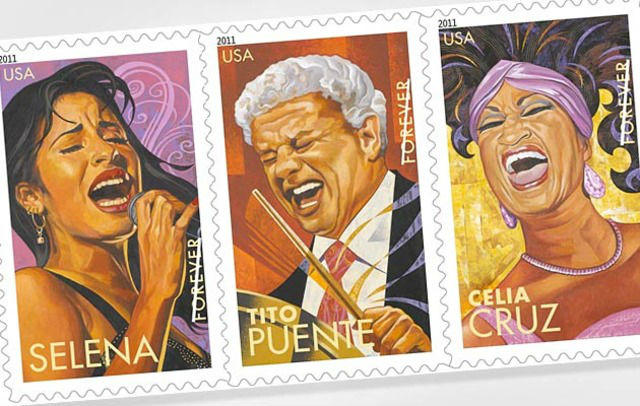Did you know that September 15th-October 15th is National Hispanic Heritage Month? These 30 days are a chance for all of us Americans to take the time to recognize the latin roots of 17% our nation’s citizens. And what better way to celebrate than by learning some new salsa moves?
Salsa dancing, born in the United States as the result of the influence of a mixture of latin cultures, including Cuban, Puerto Rican, Dominican, Colombian, and Venezuelan, is the epitome of celebrating los raíces and the present state of what it means to be Latino.
Side note: there’s a debate about the political correctness of the term “hispanic” that I’m going to sidestep, but not completely ignore. “Hispanic” denotes a Spanish origin, which of course does not describe all who speak Spanish or who identify with being Latino. Critics claim that the usage of this word perpetuates the hegemony of Spain over its colonies in Latin and South America, and by extension, its legacy of cruelty and brute force. Generally, I would choose to avoid this word and use the more commonly-accepted “latino.” If anyone has any thoughts on this, I would be interested to hear them.
When did Hispanic Heritage Month start — and why?
According to the government website for HHM, the observance was originally one week long. It was founded in 1968 under President Johnson’s administration. Later, in the 80s, Reagan expanded the observance to last 30 days, ostensibly to include October 12th — Columbus Day, Indigenous People’s’ Day, or el Día de la Raza, the latino answer to Columbus Day. “El Día de la Raza” translates to “the Day of the Race.”
Additionally, the month of celebration begins on September 15th, a date which is significant to the Latin American countries of Guatemala, Nicaragua, Costa Rica, El Salvador, and Honduras as their Día de Independencia.
How is the HHM celebrated?
The original directive of the celebration of Hispanic Heritage was for Americans to celebrate the contributions of Hispanics throughout history, in large part involving a focus on education. The Library of Congress, for instance, has been holding events all month, including a reading by the new poet laureate — in fact, the first Chicano poet laureate we have ever had in the US — Juan Felipe Herrera. Herrera announced during his reading that his project during his time as laureate will be an epic poem about the American experience, with a new segment monthly.
Another emphasis is placed on recognizing Hispanic/Latino war veterans. Despite segregation and mistreatment in the United States, many Hispanic and Latino citizens still gave their lives to protect the US during times of war. And in the education sector, teachers are encouraged to discuss Hispanic history with their students.
Why is cultural awareness important?
Perhaps the most prevailing answer to this question is that as a whole, our society’s ability to learn from historical mistakes is the most accessible tool we have for preventing repeating future discrimination.
For example, awareness of the difficulties faced by indigenous peoples at the hands of white colonists in Latin and South America is an inherent part of appreciating what it means to be Hispanic, Chicano, or Latino today — especially in America. The struggles faced by ancestors of current Latinos in the US are deep and varied, involving persecution, abuse, and racism that still prevails today. But the journey to come to the United States to find freedom and security is a history that most of the rest of us (excluding Native Americans) share.
Knowledge is power, as the old saying goes, and I strongly believe that at the crux of unity lies a basic understanding and pride for our differences. Cultural awareness necessitates respect, and in turn, of coming together to celebrate our diverse backgrounds. All Americans, not only Hispanics/Latinos, owe respect to the Hispanic/Latino heritage.
A word on el Día de la Raza.
In a CNN iReport I found online, a young writer, Lunaasul (obviously a screen name), discusses the importance of el Día de la Raza for Latinos. “Although nothing justifies the violence and injustices that were accompanied by Columbus, for every wrong there is always a good thing.” The good she identifies as coming from Spain’s reign over the colonies is that it created a mezcla — and therefore a union — of involved ethnicities and cultures. She includes European cultures in this.
Although certainly not everyone who identifies as Hispanic or Latino shares Lunaasul’s sentiments — my aim is not to simplify an undoubtedly complicated subject matter — I do believe that her assertion of these complications as being an inherent part of her cultural identity, regardless, does indeed hold water. Harkening back to our need for an honest form of cultural awareness, Lunaasul simply wants to recognize the truth behind the complexities and find empowerment within this truth.
So, why should you care about Hispanic Heritage Month?
Every cultural identity is fraught with complications and difficulty — and in our histories we hold both times of triumph and times of persecution. We cannot deny any part of this makeup, and yet to ignore it is to perpetuate it. Only through awareness and education can we truly begin to value the humanity that lies at the heart of us all, regardless of our different identities. And only through this human connection can we see that the cycle of violence and hegemony can be interrupted.
Now, back to what I was saying before — why not take a salsa class? Live a little.


Leave A Reply